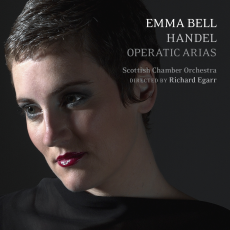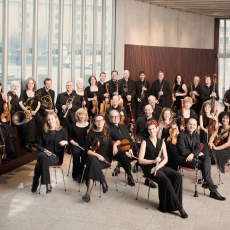Emma Bell - Handel - Classics Today
Emma Bell has an astonishingly beautiful, full lyric voice, inherently capable of feats of coloratura as well. This is a re-release from Linn of a CD made and released in 2005; I missed it then but am glad to hear it now. At first she impresses you with the grandeur of her sound; it is "lush", a word rarely associated with singers of Baroque music. Indeed, she does not have the earmarks of an "early music" singer-i.e, no vibrato-and the Scottish Chamber Orchestra is not a period-instrument band; but as led by early-music specialist Richard Egarr, these performances are not anachronistic, merely full-bodied.
You might argue that Bell's approach to the Baroque is Mozartean (she has sung the Countess in Figaro), but there are worse crimes. She never aspirates-no "ha-ha-ha" as she climbs and descends a scale-and while she's generous with portamento, she never scoops.
"Desterò dall empia dite" from Amadigi begins the recital with a bang: a pair of trumpets noodles around Bell's voice as she executes runs and roulades with ease in full voice, giving the brass players a run for their money. Bell changes mood with the aria's changes in tempo, as she should, and this odd piece coheres. In truth, Ginevra's "Orrida agli occhi miei" from Ariodante should be sung by a lighter soprano, but Bell sings it with style. "Scherza in mar la navicella" from Lotario is another fast piece, but it is more dramatic and fits Bell ideally.
But it is in her reading of the slower, more dramatic arias-the heavy-hearted pieces-that she shines even more. Her reading of "Piangero" from Giulio Cesare is simply lovely, sung with a range of dynamics we rarely hear in this music. She can carry a long pianissimo line through to a musical, inevitable end, and moments later attack, full voice, a new phrase for emphasis. Rodelinda's "Ombre piante", sung with a voice the size of Renée Fleming's, puts the latter to shame: Fleming slides in and out of notes (albeit with ravishing tone), adding emphases that mar the line; Bell is dignified and somber, and as lonely as the flute that introduces the melody. "Sommi Dei" from Radamisto is another piece full of gravitas, and it rivets the attention.
If slightly "improper" Handel (but not in the 1950s sense of the word) is okay with you, this marvelous recital will delight.



